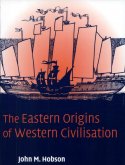U.S.-led supply chain talks put focus on minerals, semiconductors
IPEF heads toward partial deal later this month to reduce China dependence.
Negotiators for the U.S.-led Indo-Pacific Economic Framework are hammering out the details on how to build stronger and more stable supply chains for products like minerals and semiconductors in a bid to reduce reliance on China.
The U.S. said Tuesday that "strong progress" was made at this fourth IPEF gathering, held May 8-15 in Singapore. Participants in the latest round of talks continued sculpting texts covering the four pillars of the framework: supply chains, trade, "clean economy" and "fair economy."
They aim to reach a partial agreement at the upcoming ministerial meeting in the U.S. on May 27. The IPEF seeks to increase resilience to disruptions that can sever supply chains, such as pandemics, climate change and conflict. Members are hashing out a mechanism to share information on and request alternative sources for essential products such as masks, medical supplies and semiconductors.
Cooperation on early links in the supply chain, like minerals and raw materials, can bolster economic security. For example, though China manufactures roughly 70%-80% of electric vehicle batteries globally, the country supplies only about 20% of the minerals used in their production.
While the U.S. produces less than 1% of the world's nickel, Indonesia produces about half, and Australia 5%, the U.S. Geological Survey reports. Southeast Asia and Australia also supply other critical minerals like cobalt and lithium. This creates room for cooperation, such as sharing supplies.
A key question is whether the IPEF arrangement will be worthwhile for its members. Many Southeast Asian countries have close ties to China. "The focus will be on how emerging economies balance [the IPEF] with their China policies," said Toshiki Takahashi, chief economist at Japan's Institute for International Trade and Investment. The IPEF includes Japan, South Korea, Indonesia, India, Australia, Brunei, Fiji, Malaysia, New Zealand, the Philippines, Singapore, Thailand and Vietnam.
Non paywall source:
Source:

